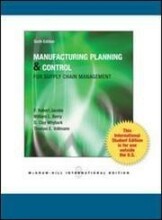Analyze & Improve
6 important questions on Analyze & Improve
Define the improve part of DMAIC model.
Explain why you should use an Ishikawa diagram.
- A Cause and effect diagram is a tool that helps identity, sort and display potential causes of a specific problem (or effect)
- It graphically illustrates the relationship between a given outcome Y and all the factors X that influence the outcome
- Increases knowledge of the process
- Performed through brainstorming
- You can combine Ishikawa with sidebook tool.
When should you use a Pareto chart to analyze?
- Bar chart arranged in descending order from left to right;
- Bars on left relatively more frequent than those on the right;
- The cumulative percentage of effect of the causes separates the "vital few": from the "trivial many" (80-20 Pareto principle)
- Higher grades + faster learning
- Never study anything twice
- 100% sure, 100% understanding
What are the steps for making a Pareto analysis?
Step 2: Make percentages
Step 3: Add up percentages cumulative --> how many would you choose: it make more sense to choose the first 2 or 3, because you have only 9 items.
What are Kaizen circles?
- Group of employees (front line - CEO) who meet regularly to solve problems;
- Trained in planning, problem solving, and statistical methods;
- Often led by a facilitator
Goal: pressure on the employee by triggering him/ her with asking “how to improve?”
Explain the idea of Poka - Yoke.
The idea is: you want to prevent mistakes --> we make things in our way to make it impossible to make mistakes. (e.g. sim card shape, USB, dop at benzine tank, thrash bin)
Check list:
- Prevents re-occurence?
- Low costs?
- Simple to use?
- Easy to implement?
- Durable?
- Easy to maintain?
The question on the page originate from the summary of the following study material:
- A unique study and practice tool
- Never study anything twice again
- Get the grades you hope for
- 100% sure, 100% understanding






























